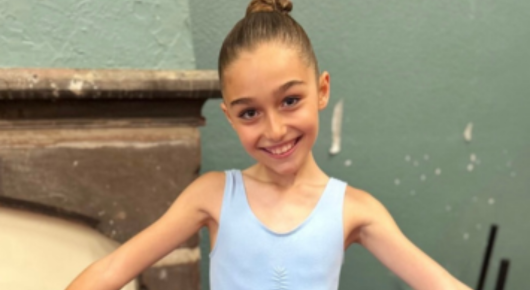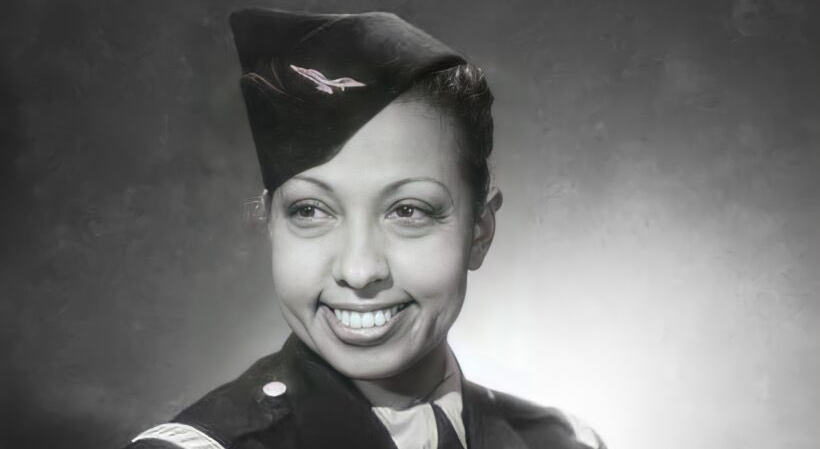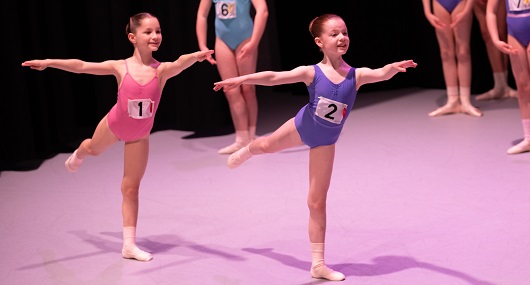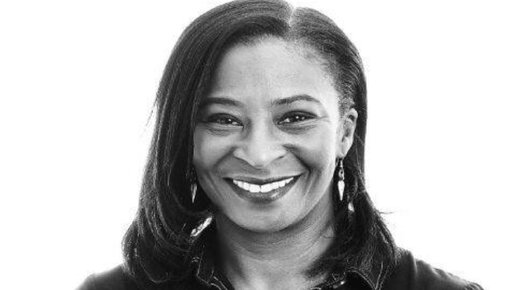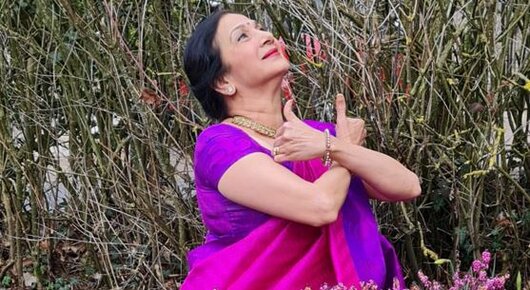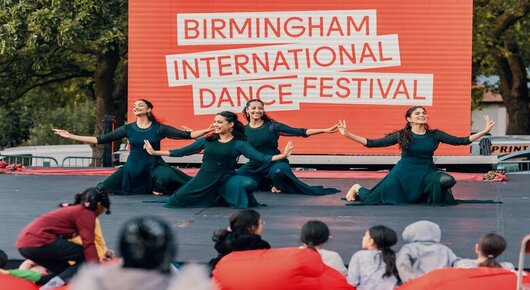26 August 2021
*A shortened version of this article was featured in issue #493 of Dance Magazine. If you're not a member, you can subscribe to Dance Magazine today.
We spoke to five dance teachers, each with a range of qualifications and experiences that got them to where they are today. Read on to discover the different pathways to a career in dance.
Katie Bell
Katie Bell lives in Cornwall. She is the Principal of her dance school 'Bell Dance Academy', which currently has two strands: the first offering dance classes in multiple styles, the second primary projects, in which the Academy visits schools and teaches the dance elements of the P.E. curriculum, giving all students access to dance. In October 2020, Katie completed my DDE in Modern Dance.
"Before starting my training for my DDE, I had completed a BA Honours Degree in Dance from The University of Chichester and I had also achieved full teacher status after graduating from The Institute of Education, University of London with my Certificate in Education and achieving my QTLS. I came to dance through GCSE, A- Levels and a BTEC National Diploma, and moved to university from there. I was a full-time teacher in a college teaching BTEC for 10 years before I relocated from Kent to Cornwall and decided to open my own school. Before teaching, I spent time working as a freelance dance artist working across the Southeast and London, teaching and performing.
When I opened my school, although I could teach graded contemporary syllabus, I knew I wanted to be able to offer my students more. I have never been through the exam process before, so to achieve the DDE I knew I had to take my Intermediate Modern. I learnt the Intermediate syllabus over three months and took my exam, achieving Distinction. This is something I am extremely proud of, considering I am an older student (in my mid 30's). I chose the ISTD as I felt very welcomed. Even though I had never been through the exam system, the team helped me find the best way to join the Society and become a full member.
I started my ISTD journey with Deborah Laws, who supported me throughout my journey and helped me achieve the Intermediate through learning all the syllabus (I had to learn this all from scratch!). Midway through my DDE, we were hit by Coronavirus, and we all had to move online. This was difficult as I have two children at home, and I also had to teach them at home. We had weekly Zoom sessions and continued our training working through the course, we came back to practical classes for six weeks before taking the final exam. As I had already achieved my Certificate in Education, I only needed to complete the unit 4 for my exam, which was another reason for choosing the ISTD as they took my other training into consideration.
I know that once I have spent some time delivering the Modern syllabus, I can start to look at become a Licentiate member. I have also thought about studying for my master’s degree with Middlesex University, which has developed their course in conjunction with the Society.
I would absolutely recommend the ISTD and the DDE course, I now have such a wonderful network around me and since completing the course I have had the opportunity to take part in CPD and workshops, where I have been made to feel extremely welcome. Every time I have contacted the Society they have helped and answered all my questions. It has been a wonderful development in my career."
Martin Howland
Martin is the Co-Director of ‘Renaissance Arts’ 3 Year Vocational Conservatoire in Leeds and ‘The Scholars’ Junior Associates Programme of Excellence, as well as the Founder of ‘Howly Ballet’, an online and practical innovative classical ballet training platform. Martin is an Associate member of the ISTD.
"I began dancing at the age of six in Brighouse West Yorkshire and was accepted to the Royal Ballet school at the age of 11. I trained at White Lodge for 5 years before being accepted to the Upper School at 16 for a further 2 years. I was trained in the Vaganova style for all 7 years in classical ballet technique and pas de Deux.
After spending 13 years as a professional dancer and guest principal dancer all around the world I decided to call it a day and to focus on my teaching. I had previously taken my licentiate teaching qualifications with the IDTA but requested a transfer two years ago to the ISTD.
I chose to transfer associations as to not only better myself but also the standard of my students. I believe the ISTD has a great deal of authenticity, tradition, and value, but also a vision to develop and progress technique and artistry whilst evolving with the modern-day performer. From this, I learned to be better at my job, to leave no stone unturned and to find my students version of their own perfect. Ballet can be very subjective and extremely opinionated, and I help my students achieve physical and artistic feats by understanding their own capacities to grow and hit their targets. Being objective as opposed to subjective is a big thing in my class. I’m a great believer that become the artist you have to become the athlete first.
As far as my evolution as a teacher, I’m not entirely sure here I’m at in my journey just yet, I’m still on the road to becoming the best version of myself that I can possibly be. Every day I step foot in the classroom I learn something new, which allows me to become a better teacher, ultimately allowing my students to become better dancers. Working with the ISTD will allow me to continue my journey and learn all there is to know about classical ballet and the world of dance.
My advice? Work hard, ask questions, think outside the box. Whether as a dancer or now as a teacher I find that every problem has a solution. You have to be adaptable, passionate and suggestible to reach your limits in the world of dance. There is no blueprint to success and don’t go looking for answers or a quick fix that simply require time and patience. Life is about the journey and little to do with the final destination."
Nadine Brenton
Nadine is Subject Leader of Dance at The John Warner Secondary School (LISTD, Level 6 DPP, QTLS, DDI, DDE)
"I was fortunate enough to have Chichester College as my local further education centre. Irela Strachan was the teacher for the dance courses, who also guided me through my entire Imperial Society of Teachers of Dancing journey. I began gaining qualifications once I left school, in both the BTEC Level 3 Diploma and the Level 4 Higher National Certificate. I was privileged to have teachers who were able to guide me to the correct course which led me to becoming an ISTD dance teacher.
I started studying The Diploma in Dance Instruction (DDI) for Imperial Ballet, Modern Theatre and Tap Dance. I continued to train at the college on the Level 4 Diploma in Dance Education (DDE). It was there that I took my Advanced 1 examination as well and any work experience for future courses and training.
I chose to take ISTD teaching qualifications because I had attended an ISTD dance school, so I felt comfortable with the syllabus. My teachers would motivate and encourage me to widen both my technical and performance skills. They would offer alternative routes, one being the chance to become a dance instructor. It was recommended that I apply for the DDI course. I have always had a passion for dance but was unsure whether to train to become a performer or look at other roles in the performing arts industry. Having the opportunity to become an ISTD teacher released a new ambition for me.
I began my journey as a ballet teacher, but over time progressed my teaching qualifications in other genres. I learnt that achieving one teaching qualification did not give me the same standard and experience as other teachers, and that this would take time to build. Having a wider range of dance styles opened more job opportunities, which ultimately allowed me to use the skills from different dance categories to accommodate all students and their learning.
I graduated from the ISTD Level 6 Diploma in Dance Pedagogy in February 2018. This required two years of part-time studies, during in which time I was expected to attend lectures based on a variety of subjects on weekends twice a month. Not only would I be updating my knowledge of dance during these lectures, but I was also expanding my knowledge of pedagogy and learning how to become a better teacher. To study on the course, I was expected to hand in regular assignments and present evidence of in depth reading and research. Since graduating from the course, I feel I have a broader knowledge of the subject and have a new-found confidence.
The main reason for my studying on the DDP course was to allow me to apply for QTLS so I could work in a secondary school or FE college. The QTLS course was an online course for a further six months, where I continued to submit coursework with the help and guidance of my chosen mentor. Both courses were challenging, especially whilst juggling teaching.
I now work in a secondary school in Hertfordshire teaching the whole dance curriculum. My focus being examinations in both GCSE and A-Level dance, although, both courses have had their difficulties. Without these qualifications I would not be working at my current job which I love. The Subject Leader of Dance.
All teachers need to be critical consumers of educational research, to find the best strategies and solutions that will work best for their classes. With dance evolving, it is important as teachers to continue to update training as regularly as possible. I recommend finding a college that can support and guide you through the whole process and allow you to complete the course with confidence. Chichester College is now offering the Level 6 Diploma in Dance Pedagogy from September 2021, and I highly recommend Irela Strachan and the college."
Jodie Clark
Jodie is currently Assistant Principal at The BRIT School and holds FISTD alongside a Master of Arts Degree in Creative Practice in Education. She is also training to become an ISTD Contemporary examiner.
"As a child, I trained at the Roshe School and studied ISTD syllabus work in Imperial Ballet, Modern Theatre, Tap, Classical Greek and National. I then trained at Bird College under the direction of Doreen Bird and Sue Passmore, where I graduated with Distinction and AISTD in Ballet, Tap and Modern Theatre.
Once I had moved into teaching after a varied and enjoyable performing career, I studied with Karen King to gain further status exams within the ISTD. Attending classes on a Wednesday morning provided a great opportunity for me to begin to develop a network of great teachers, friends and access to knowledge and discussion that began in the syllabus work but stretched far beyond it. During this time, I started part-time work at The BRIT School, delivering Ballet and Jazz classes and ISTD Modern Theatre vocational examination classes.
I always knew I wanted to teach, and it was a natural progression having completed the performance exams to gain AISTD. It was also one of the reasons I chose to train at Bird College (as the Associate exams were embedded in the course). Once I decided to teach full time, I wanted to develop my knowledge and skills further, and discovered how much I like to learn. I really felt as if a whole new career had opened up to me with endless possibilities.
What I have learnt from working through the ISTD status exams is that the greater depth and detail of understanding I have developed has given me much confidence in my craft. This confidence enables me to engage and enthuse students in their learning; I love to share the things I have learnt, researched, or discovered. I enjoy seeing the improvement in my students as they not only master steps to build vocabulary, but also begin to understand their bodies in space and then appreciate how strength and control can be applied alongside expressive qualities, which enhance their enjoyment and sense of accomplishment.
I also learned that there are some wonderful people who share the same interests as me and I have made many special friendships though taking courses with the ISTD. That network is priceless, lots of fun, and also generates teaching opportunities as I have been able to work with many students through workshops and guest coaching.
My ISTD status qualifications provided some of the experiential evidence I needed to complete a BA (Hons.) Professional Practice degree at Christ Church University College, Canterbury and then qualified teacher status (QTS). This enabled me to climb the teachers’ pay scale and go through threshold providing me with much professional development. I have since mentored other teachers informally, through their Licentiate, on the Level 6 DDP course as well as delivering parts of the DDE. I have also enjoyed many years as an Adjudicator for The British and International Federation of Festivals and All England Dance.
When it comes to the ISTD, my recommendation for dance teachers is to get involved. There is so much learning on offer, not only the syllabus work but other areas that relate to best practice. When we can be back in the studio, be there. Meet your peers and be brave to exercise your voice. Ask questions and let the ISTD know what you want from your membership. The ISTD has a great heritage, but it must have a future too, it’s in our interest to challenge and move things onwards.
Also, challenge yourself. If you have thought about the next status exam, do it, commit to it, find a network that can support you and go for it. Your professional development is an investment into your best asset – you! I always ask my students to be better, better humans, better technicians, better artists, but I cannot ask them anything if I don’t ask, at the very least, the same of myself."
Laura Dudman
Laura is currently the Principal of Caterpillar Dance School in Rochester, Kent. She also works for a local sports partnership, delivering primary school workshops and CPD to teachers. More recently, Laura has become an ISTD approved tutor for DDE. In the past, she worked full-time as a secondary school dance teacher and a Performing Arts lecturer in Further Education.
"I have ISTD Associate qualifications in Imperial Classical Ballet, Tap and Modern, which I upgraded through the APEL process to the DDE qualification. I also have Licentiate Tap status and am working towards Licentiate Modern and Fellowship Tap.
I have been dancing since I was three years old. I did all the IDTA lower grades in Ballet, Tap, Modern and Freestyle. As a teenager, I started ISTD training at Grade 4, in Ballet, Tap and modern. I also did Ballroom, Latin American and Street Dance for many years. As part of my secondary school options, I studied A Level Dance.
I trained at The Centre Performing Arts College full time for three years and gained my ISTD Associate Teaching Certificates and Advanced vocational graded exams in Modern, Tap and Ballet. After graduating in 2003, I studied a BA (Hons) degree in Dance and Culture at The University of Surrey, followed by a PGCE in Post-Compulsory Education and Training at The University of Greenwich. I also gained a post-graduate Diploma from The University of Surrey and MA Professional Practice Dance Teaching Pedagogy from Middlesex University.
I always knew that I wanted to teach, choreograph, and have my own dance school The qualifications offered by the ISTD allowed me to achieve my goals. Being able to study for ISTD Associate qualifications at college enabled me to teach part-time in local dance schools, giving me valuable experience that I could build upon when I studied for my PGCE and taught in schools and colleges.
By completing my ISTD teaching qualifications, I was able to enter students for ISTD examinations and build my own dance school. The progression route offered by the ISTD enabled me to update my qualifications to the DDE and then progress to Licentiate level and become a DDE tutor. My ultimate goal is to become an examiner, and the qualifications the ISTD offers can help me do that. The partnership they offer with Middlesex University was also one of the main reasons I chose to study the MA programme.
I was lucky that I was able to experience both vocational training and study at university. The vocational training was invaluable, particularly if you have your own dance school and are training your students to progress to this level. However, the academic side also provided a lot of guidance and as a DDE Tutor, I can now draw on some of that to pass onto student teachers. Being able to attend the ISTD Summer School at Chichester and network with other teachers, was a real turning point, and gave me a completely new outlook on my own teaching practice. I look forward to this returning in the future."
